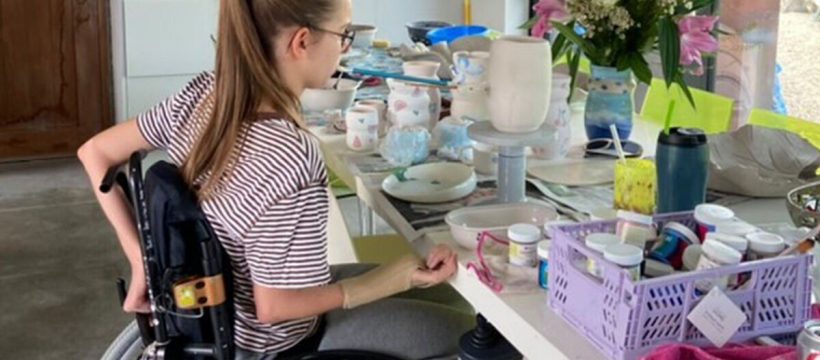
On a boat trip in Costa Brava, Spain, Emily had just enjoyed a swim and got back on the boat when she experienced “intense pins and needles”.
Starting at her feet, the pins and needles sensation spread until the top of her back.
Her dad David, 63, went with her to a hospital in Girona, where medics thought it could be sunstroke at first.
Transported back to Adenbrooke’s Hospital, in Cambridge, the family learned that Emily had a rare neurological condition called transverse myelitis.
The teenager spent a year in the care of Adenbrooke’s Hospital and Stoke Mandeville Hospital in Buckinghamshire.
READ MORE: What is an itchy bum trying to tell you? Doctor warns it could be a sign of silent killer

Emily, now 25, is mostly paralysed from the shoulders down with limited movement in her arms.
Transverse myelitis
The NHS explains transverse myelitis is caused by inflammation of the spinal cord.
The swelling causes damage to the nerves, which can cause scarring that interrupts the communication between the nerves in the spinal cord and the rest of the body.
Symptoms of the condition can include:
- Muscle weakness in the legs, and sometimes the arms
- Mobility problems
- Unusual sensations and numbness
- Bladder problems
- Bowel problems
- Sexual problems
- Pain.
Don’t miss…
Pharmacist shares five surprising signs you could have hay fever[SYMPTOMS]
Tim Curry health latest – where the actor is now after suffering a stroke[CELEB HEALTH]
Doctor on three mistakes men could be making before bed that leads to poor sleep[LATEST]


We use your sign-up to provide content in ways you’ve consented to and to improve our understanding of you. This may include adverts from us and 3rd parties based on our understanding. You can unsubscribe at any time. More info
The NHS cautions: “Transverse myelitis can happen to anyone at any time in their life.
“In most cases, there might only be one episode of symptoms, but sometimes it can happen repeatedly.”
What causes transverse myelitis?
There can be several different causes of transverse myelitis, such as an autoimmune disease, a viral or bacterial infection, or cancer.
Despite Emily’s condition, and her dependence on carers, she has completed a master’s degree and still travels.
“I didn’t want my injuries to stop me moving forward. You find your own way to do things,” said Emily.
“I saw someone online who was mouth painting. I gave it a go and ended up really liking it. It’s a great way to destress you.”
You can see Emily’s ceramics at https://wheelygoodceramics.bigcartel.com.
Source: Read Full Article
